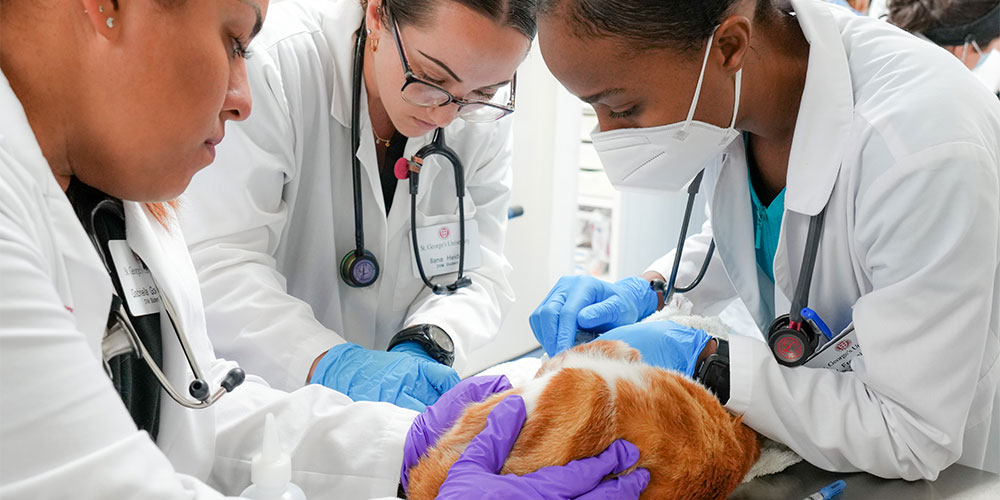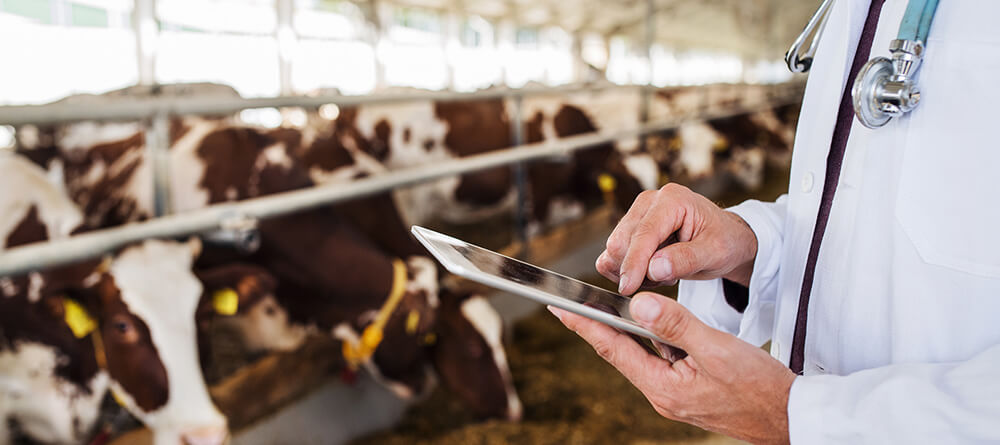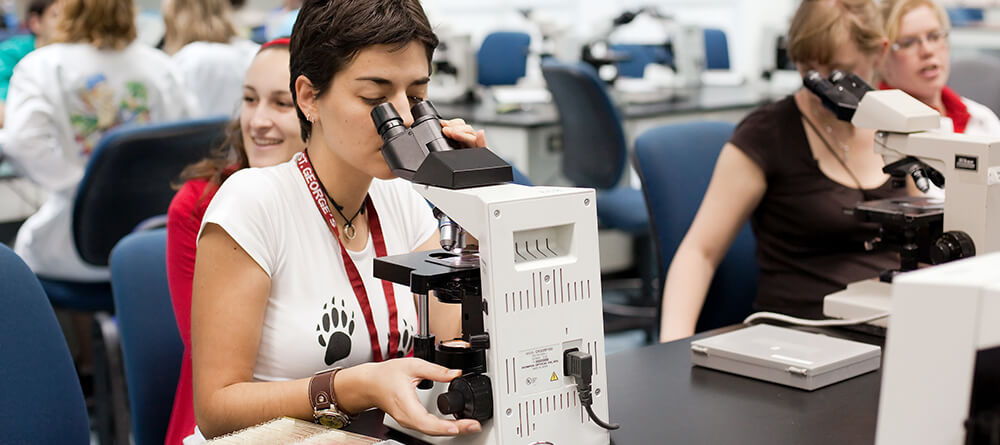The world of veterinary medicine careers is vast. While many Doctor of Veterinary Medicine (DVM) graduates pursue a career working with pets, there are other types of veterinarians out there as well.
You can easily spend hours scouring the web to learn more about different career options for veterinarians, so we’re here to lighten your workload. We’ve highlighted some of the major types of veterinary positions you should know about.
We pulled together an overview of the major professional paths in the vet field. By learning about each of these paths, you can gain a better understanding of which veterinary career could be right for you.
5 Types of veterinarians you should know about
With are specializations under each major category, this is not an exhaustive list of veterinary career options. However, it should give you a better idea of some potential paths you could take as a veterinarian.
1. Companion-animal veterinarians
While they’re just one segment of the veterinarian population, those who work with companion animals are the largest group. In fact, the American Veterinary Medical Association (AVMA) reports that around 75 percent of all veterinarians in private practice work mostly or exclusively with companion animals.
These practitioners, also called small animal veterinarians, are sort of like primary care physicians who work with humans. Their day-to-day tasks can involve treating wounds, diagnosing illnesses, performing surgery, administering vaccines, and prescribing medications. They also euthanize animals nearing the end of their lives.
Small animal vets can even pursue shelter medicine, a relatively new field that entails caring for animals in need of homes.

2. Veterinary specialists
Just like doctors who work with people, veterinary physicians can pursue countless specialties. In fact, the AVMA recognizes more than 20 different kinds of veterinarians that fall under this category. Some career options are anesthesiology, dentistry, pathology, and surgery. Veterinarians can also opt to specialize in a particular species or group of animals, like cats, dogs, poultry, or wildlife.
Vet Specialists act as consultants for other vets when a particular type of equipment or expertise is required. With these different roles, specialists have different skill sets and daily duties depending on their specific specialty.
As the American College of Veterinary Pathologists (ACVP) explains, a veterinary pathologist focuses on studying disease in animals. An emergency veterinarian, according to the American College of Veterinary Emergency & Critical Care (ACVECC), specializes in treating patients in the emergency room and intensive care unit.
3. Food-animal veterinarians
Food animal veterinarians work primarily with animals raised for human consumption to ensure products are safe to eat. There are many large animal vets in this group, but that’s not always the case. Regardless of the specific focus, the AVMA notes that these types of vets ensure the welfare of food animals and also work to prevent and control disease. They may work on ranches and farms, and they often spend a fair amount of time traveling.

4. Food safety and inspection veterinarians
While both food animal veterinarians and food safety and inspection veterinarians play roles in keeping edible products safe, they’re not necessarily the same. As the AVMA points out, the food safety and inspection veterinarians often work for the government agencies and US Food & Drug Administration’s Food Safety and Inspection Service to help enforce regulations.
These types of veterinarians have many duties including:
- Inspecting livestock and animal products, like eggs, dairy, and meat,
- Ensuring products meet sanitation standards
- Quarantining infected animals to prevent illness from spreading to other animals and humans
- Complete testing the safety of medications and additives.
5. Research veterinarians
While every DVM needs to have strong scientific knowledge, it’s even more important for research veterinarians. According to a career overview from AVMA, these types of veterinarians may find themselves working for government organizations, biomedical research firms, or universities. Vets who work at education institutions are often faculty members who teach vet students.

Veterinarians employed by schools and government agencies may review past findings and techniques to work toward better methods for diagnosing, treating, and preventing health conditions. Those who work with biomedical or pharmaceutical firms develop and test drugs and other biomedical products.
What type of veterinarian do you want to be?
You clearly have no shortage of career options as a DVM. Now that you’re starting to think about which type of veterinarian you might want to become, it might be worth considering how to move forward.
If you have more questions, you can connect with SGU about your future options for veterinary medicine education. One of our current students or admission advisors will reach out and give you more information about our vet med programs.
*This article has been updated from October 2021 to include current facts and figures.

